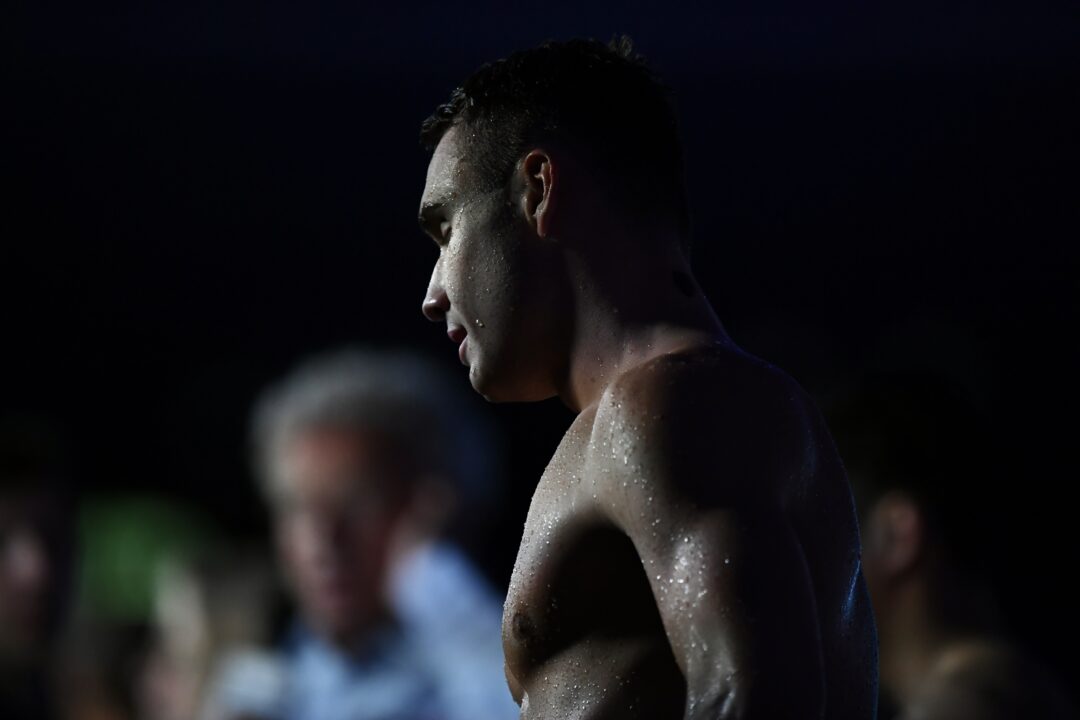One week after defending Olympic and world champion Kristof Milak withdrew from this year’s World Championships to “recharge the batteries,” one of his coaches offered more details about his timeline for return.
According to Gyorgy Zala, a Hungarian canoeist who competed at three Olympics and won two bronze medals, Milak doesn’t want to see water until September. Zala is handling Milak’s fitness training in the meantime before he returns to working in the pool with coach Balazs Virth in a couple months.
“It’s clear: The monotonous training has worn him down,” Zala told Hungarian media. “Physically, he has no problems, but mentally he couldn’t stand the constant monotonous training anymore. Kristof reached a spiritual low point.”
Zala also rattled off a bold prediction: If Milak starts training again in September, the 23-year-old phenom will break his own world record in the 200-meter butterfly under the mythical 1:50 barrier.
In his statement last week, Milak said he was devoting this summer to relaxation in order to “restart my training and the competitions with a lot more energy, with a much better approach, so I can reach the level I’ve used to have.” He made his announcement exactly a year after breaking his own world record in the 200 fly with a 1:50.34 at last year’s World Championships in his home city of Budapest, Hungary.
Milak is far from the only high-profile swimmer to struggle with issues of burnout. American star Caeleb Dressel pulled out of last year’s World Championships with undisclosed health issues, dropping off the map for two months before returning with an important message: “If you need a break, take one.” This week, he missed the U.S. Worlds roster, but coach Anthony Nesty said Dressel is “very happy where he’s at now” with his focus remaining on the Paris 2024 Olympics.
Aussie sprinter Cam McEvoy is experiencing a career resurgence at age 29 after taking a year-long break from the sport following the Tokyo 2021 Olympics, finding a new hobby (rock climbing), and dedicating himself to proper strength training.

Honestly probably good for him not just mentally, but physically. Remembering how many killer times there were at 2021 NCAAs with a lot of swimmers out of the water for a while
These athletes have a rough awakening when they get to real life
What they are living IS their real life. How would you know what they’re going through?
I’d live my “real” adult life over several times without blinking an eye, but I would NOT want to relive my swimming career over. I am truly glad I did it and have never regretted it, but it was hard and I wouldn’t want to do it again.
I think being a pro swimmer is an extremely challenging real-life job, physically and mentally. Harder than most normal jobs.
I think it is a very challenging job.
But I also think we do a piss-poor job of preparing swimmers for the rigors of the job, as a community. I think both of those things can be true.
Harder than most normal jobs? Probably. But I wouldn’t say it’s unique in bringing physical, emotional, and mental challenges (ask public accountants, ER doctors…swim writers). But the way we approach the job of pro swimmer versus other jobs is what makes it most unique, IMO.
To sum it up succinctly: there’s no HR for elite swimming.
Really tried to sneak in swim writers
Nice. Hope this becomes more commonplace in every field.
At some point you see the bottom of that pool just one too many times and you have to do what’s best for yourself.